As a third generation Korean American I grew up never knowing any of my ancestors, nor of their struggles in both Korea or the new world the United States of America.
For me my greatest joy and way to pay homage to my ancestors was in helping Korean American Pioneers and their families document their families’ important past into the USC Korean Heritage Library. This documentation takes place in many forms: pictures, artifacts, stories, books, documents, etc. Pioneers’ contributions that might have been forgotten without the efforts of groups like the Korean American Pioneer Council, reaching out to pioneers and their decedents, extended family and friends, are captured and preserved to help flesh out the details of a history well worth remembering.
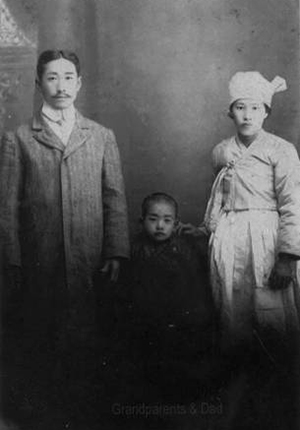
Years ago while out to dinner with friends who immigrated from Korea in the 1980s, they challenged me by asking why don’t you learn about your Korean past and history. I said that should not be too hard as my grandparents family name is quite rare in Korea. On that note, the very next day – I was sharing that challenge with another friend who also immigrated from Korea and he pointed out that the Korean government is looking for Korean Patriots
My friend went on to say, Yes, your family name is rare in Korea. I thought maybe my family might actually have a story to tell. Until now I was just proud to be an Asian American of Korean descent with no ties to Korea. That thought could not be further from the truth.
My next move was to reach out to Dr. Ken Klein of USC Heritage Library, where I thought my grandfather would be a person of interest, Ken said no, it is your great grandfather. I thought how is that possible. Was I ever naïve – little did I know or imagine that I too would one day have a rich family past of my family being involved as Korean Independence Fighters. My oversimplified view was watching Netflix’s Chicago Typewriter, a must see. All I knew growing up was my Great Grandfather left his wife and small son and was a tailor in San Francisco. I used to wonder how such a man of modest means sent his son to both Cal Tech, and the University of Southern California in the 1920s. This was not even close to the true life stores of my Great Grandfather Chung Kul Whangbo, and Grandfather Ik Jun Hwangbo.
Dr. Ken Klein later reached out and informed me that it was also my grandfather was also was part of the Korean Independence movement. I began to think, what happened a 100 years ago, and that my grandparents were speaking through history and the present day Korean Government to me. My ancestors have my attention now.
My Whangbo/ Hwangbo side of my family originated in Pyongan, North Korea. Both my Great Grandfather and Grandfather died the same month in 1961. My Grandfather had a fatal stroke the month he was laying his father to rest. Sadly to this day no one in my small family has ever visited my late Great Grandfather’s grave site in Colima, California. My Grandfather was buried in Pittsburg, Pennsylvania. This is particularly sad, as I was born in Pennsylvania and my parents never visited the grave site of my grandfather, I never knew where he was buried.
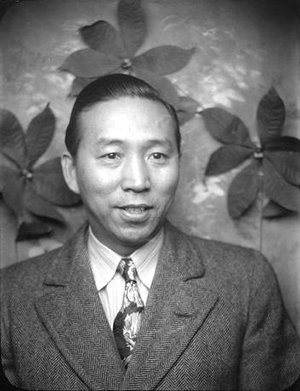
For my great grandfather, I knew even less, and to make matters worse my wife and I just moved back to Southern California from the Bay Area (Pacifica, California) only to learn that we were so close to my Great Grandfather’s burial site. We plan to visit once COVID is over. But it breaks my heart knowing that in 60 + years no one has visited my Great Grandfather’s grave site.
My grandfather was born Whangbo Ik Jun / aka Eugene Park Hwangbo. Eugene was among the Korean Students that came into the United States by way of China. In 1904 he crossed Korea’s northern border into Manchuria at the age of 8, there Eugene completed his elementary and secondary education.
He studied in the Ming Dong School from 1912 to 1923. From there the Young Men’s Christian Association School from 1923-1924. Finally Dong Ryung Institute from 1924 to 1925. In 1925 Eugene boarded the SS President Taft as a Section 6 student, bound for Northern California. At this point Eugene’s father was in San Francisco, California, with his mother still in Korea.
From 1924 to 1925, Eugene was involved in “Heungsandan” (Young Korean Academy; Y.K.A.) in Nanjing, China. After he moved to the United States in 1926, he worked as a secretary of Chicago Council of the Korean National Association (KNA, 대한인국민회 시카고 지방회) in 1931, as a finance member of Chicago Student Council in 1932, as a finance member of the Korean International Students Association of North America (북미대한인유학생 총회) in 1933, and as a promotor of the Korean Assembly in New York (뉴욕 한인공동회) in 1935. While working in the New York Local Council (뉴욕지방회), he served as the executive director and the chairman in 1937 and as the chairman of Executive Committee (집행위원장) in the next year. From 1931 to 1940, he was a member of the fourth class (제4반), treasurer, and secretary of Chicago Council of YKA. From 1932 to 1945, he funded the independence movement several times.
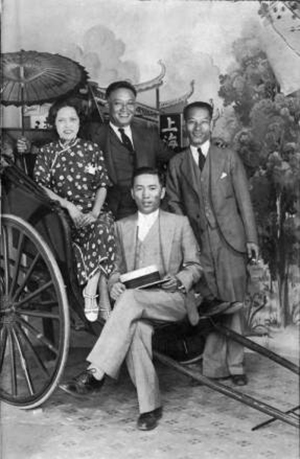
My Great Grandfather, who worked as a tailor in San Francisco, in 1912 organized an assassination team for Japanese Imperial Administration on Juzi Street, Yanji County, Jilin Province, China (중국 길림성 연길현 국자가).
In 1913, he served as the vice president of Kanmin Association (간민회) in Gando, China, as the section chief of Human Resources at Youth Friendship Society (청년 친목회) in 1914, and a promotor of Patriotic Savings Fund (애국저금회) in 1915.
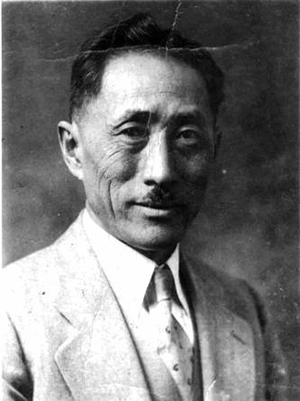
Chung Kul Whangbo after his settlement in America in 1917, he joined Claremont Council of the Korean National Association (대한인국민회 클레몬트지방회).
Since then, he worked in the educational affairs of Dinuba Local Council (다뉴바지방회 학무원), as a treasurer of Akron Local Council (애크론지방회 재무), and the president of San Francisco Local Council (샌프란시스코지방회). Also, he was the staff of the Industry department (실업부원), secretary, vice president, and president of the Korean Federation of North America (북미총회).
It is verified that he funded 330 won 50 (전) from 1917 to 1945 to support the independence movement.
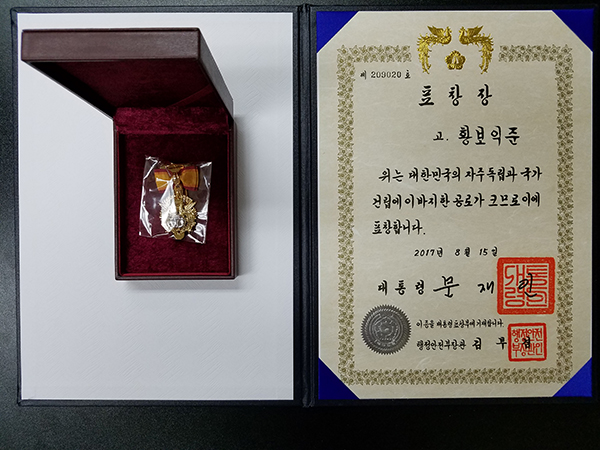
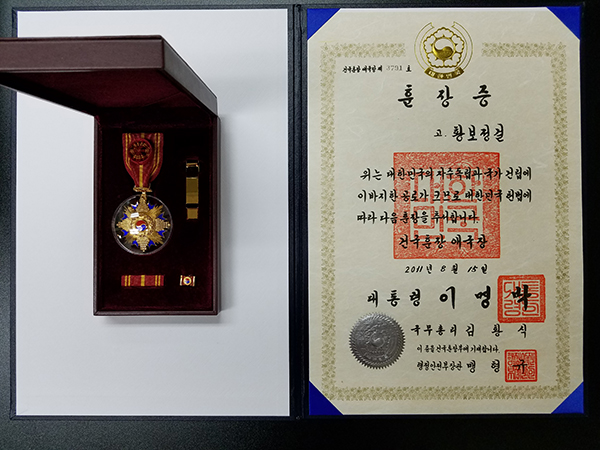
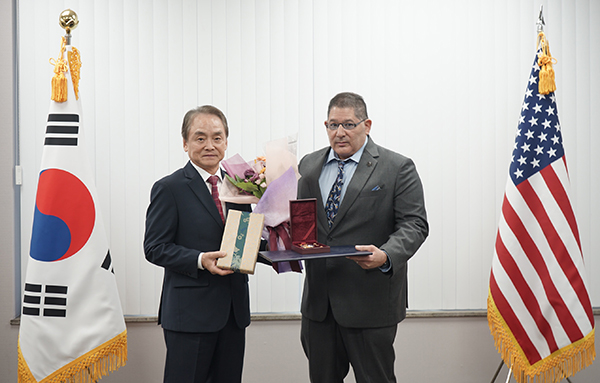
So there you have it, two men I never knew, but now look up to with deep respect as they risked and sacrificed everything to a land that they could never return to in their lifetime, a land for much of their life they fought for so the people of Korea could have a home once again. One day I hope to meet any living relative in Korea if they exist. I feel sorry that my Great Grandfather sacrificed by leaving his wife, and homeland. That will be another topic of future discovery. I also hope in Korea a small memorial/ remembrance can be made for people that left Korea and could never come back so Korea could become free.
by Alex S. Chang
